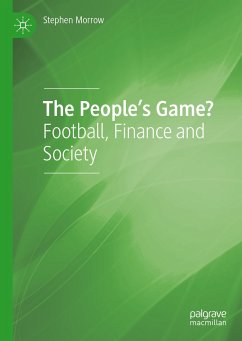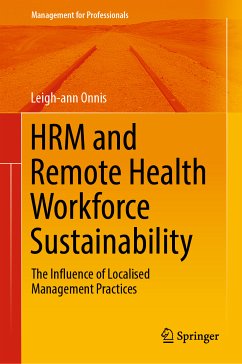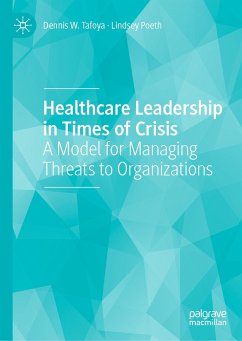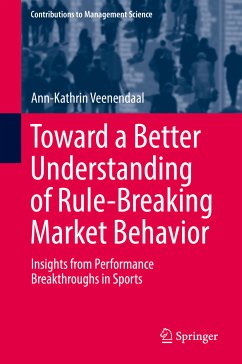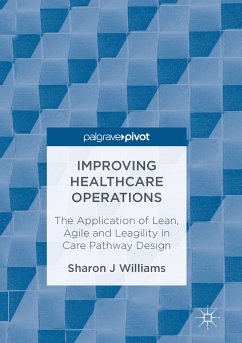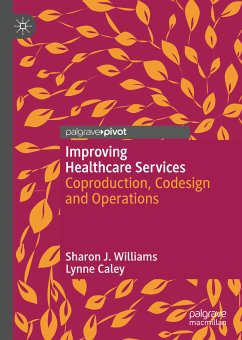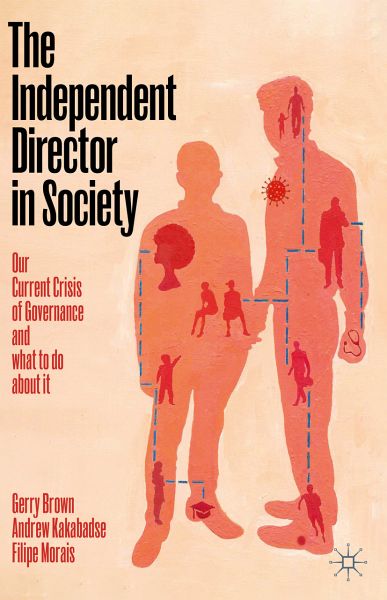
The Independent Director in Society (eBook, PDF)
Our current crisis of governance and what to do about it
Versandkostenfrei!
Sofort per Download lieferbar
26,95 €
inkl. MwSt.
Weitere Ausgaben:

PAYBACK Punkte
13 °P sammeln!
Things will always go wrong in organisations. The question is how quickly will they get caught and put right?The problem facing every organisation today - our businesses, universities, health services, or the many other sporting and charitable institutions that shape our society - is that the relationship between their executive management and those whose job it is to oversee them (whether they are called non-executive or independent directors, trustees, or governors) has become unbalanced.The Independent Director in Society shows how to rebalance it.Based on original, in-depth research from H...
Things will always go wrong in organisations. The question is how quickly will they get caught and put right?
The problem facing every organisation today - our businesses, universities, health services, or the many other sporting and charitable institutions that shape our society - is that the relationship between their executive management and those whose job it is to oversee them (whether they are called non-executive or independent directors, trustees, or governors) has become unbalanced.
The Independent Director in Society shows how to rebalance it.
Based on original, in-depth research from Henley Business School, this is the first book to survey and analyse the governance crisis right across society rather than just focus upon the business sector. The authors show that - despite their many differences - all organisations have many issues, behaviours and problems in common. The same problems require, in many cases, the same solutions. Sometimes they don't.
The authors offer two answers. The first lies in the realm of policy. Not a need for more legislation, but a move to give the existing codes of practice back their teeth and make them fit for purpose.
The second lies with independent directors themselves. Urgent improvement is needed in standards of thought and action as well as the calibre of these directors. Above all, directors need to develop an independent mindset that will enable them to make better, more accurate decisions.
There are many elements to creating this culture, including selection, training and education for directors, and support from chairs and executive teams, but most of all directors themselves must recognise their responsibilities in a complex and volatile world.
The problem facing every organisation today - our businesses, universities, health services, or the many other sporting and charitable institutions that shape our society - is that the relationship between their executive management and those whose job it is to oversee them (whether they are called non-executive or independent directors, trustees, or governors) has become unbalanced.
The Independent Director in Society shows how to rebalance it.
Based on original, in-depth research from Henley Business School, this is the first book to survey and analyse the governance crisis right across society rather than just focus upon the business sector. The authors show that - despite their many differences - all organisations have many issues, behaviours and problems in common. The same problems require, in many cases, the same solutions. Sometimes they don't.
The authors offer two answers. The first lies in the realm of policy. Not a need for more legislation, but a move to give the existing codes of practice back their teeth and make them fit for purpose.
The second lies with independent directors themselves. Urgent improvement is needed in standards of thought and action as well as the calibre of these directors. Above all, directors need to develop an independent mindset that will enable them to make better, more accurate decisions.
There are many elements to creating this culture, including selection, training and education for directors, and support from chairs and executive teams, but most of all directors themselves must recognise their responsibilities in a complex and volatile world.
Dieser Download kann aus rechtlichen Gründen nur mit Rechnungsadresse in A, B, BG, CY, CZ, D, DK, EW, E, FIN, F, GR, HR, H, IRL, I, LT, L, LR, M, NL, PL, P, R, S, SLO, SK ausgeliefert werden.



